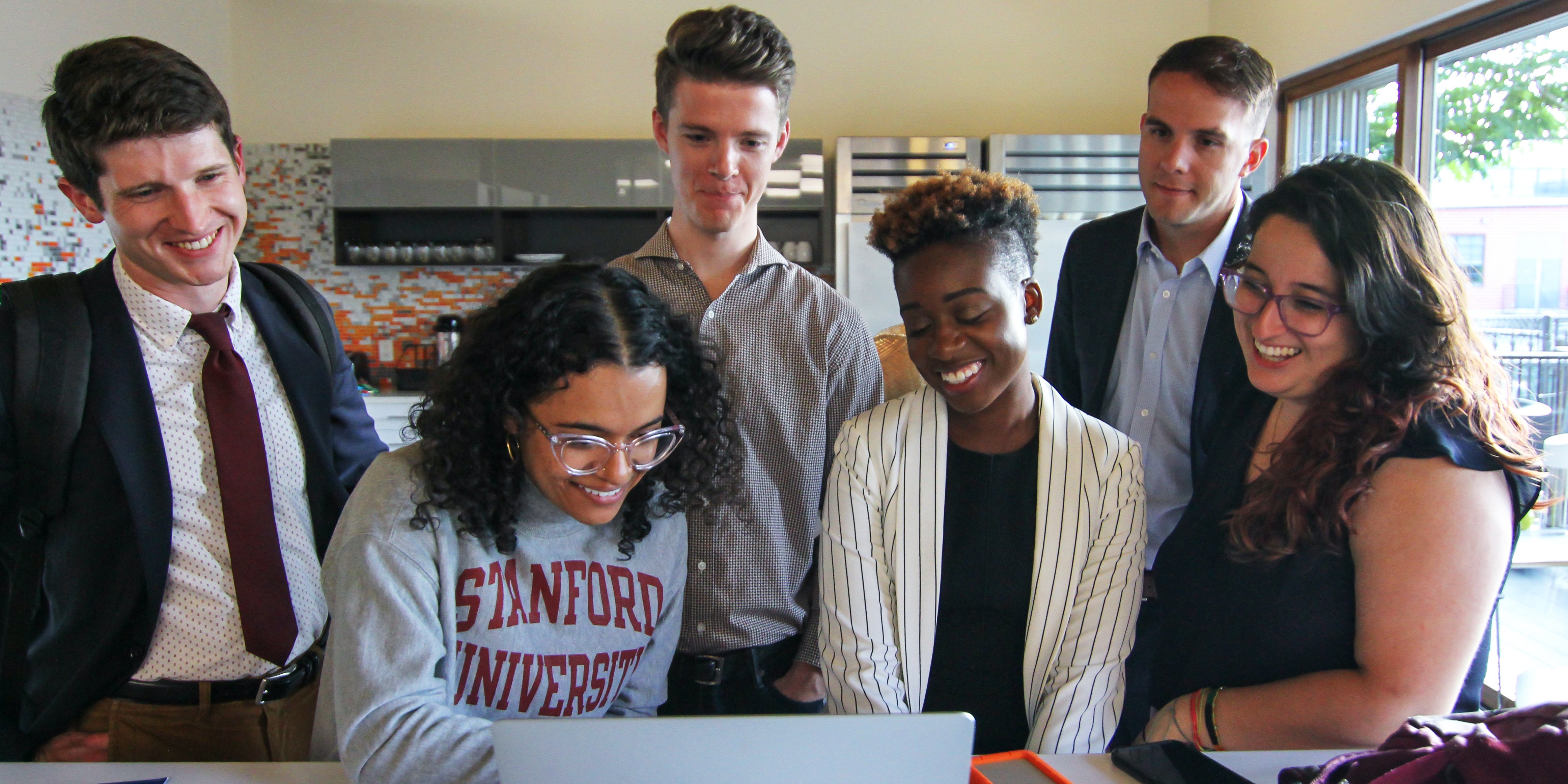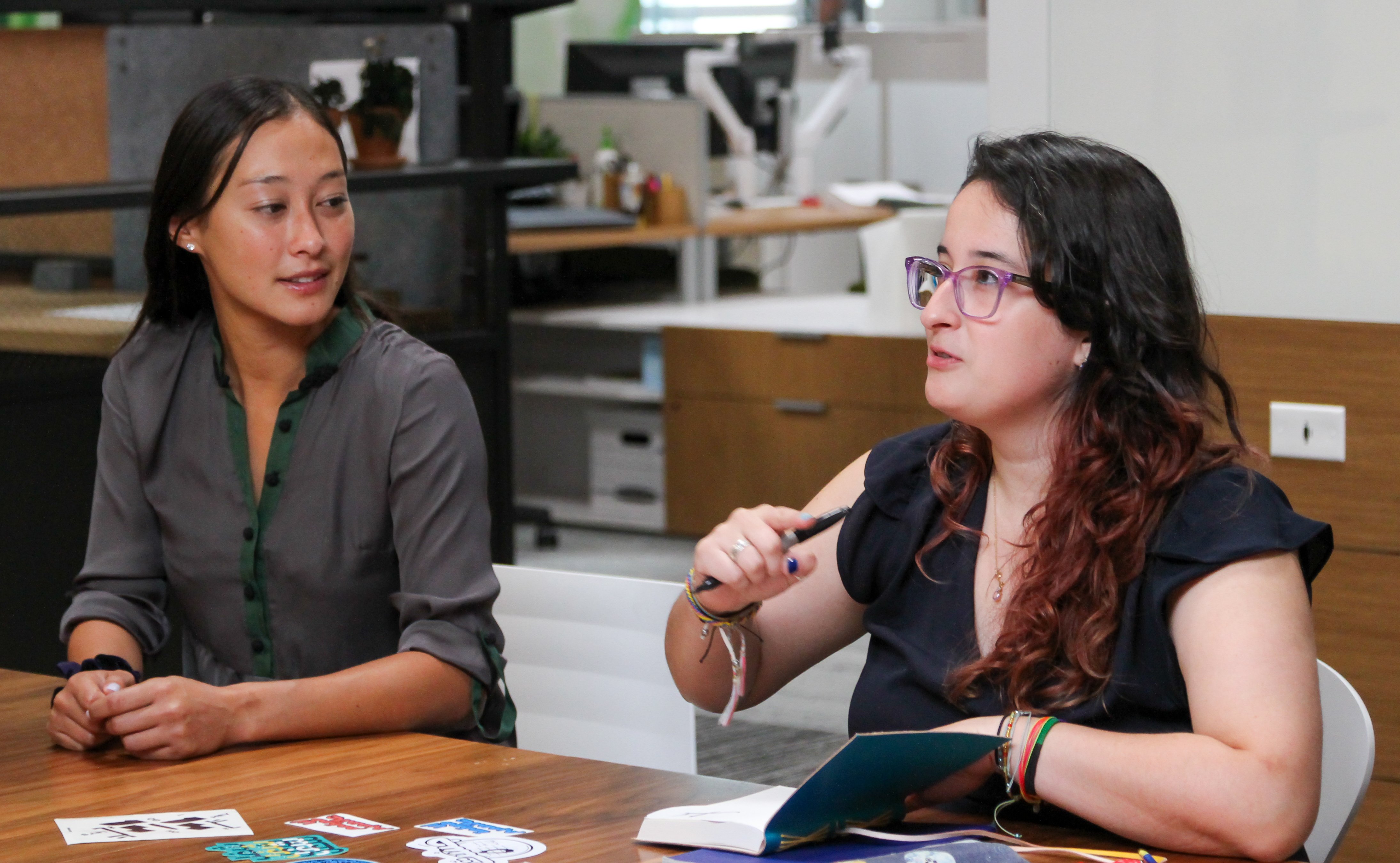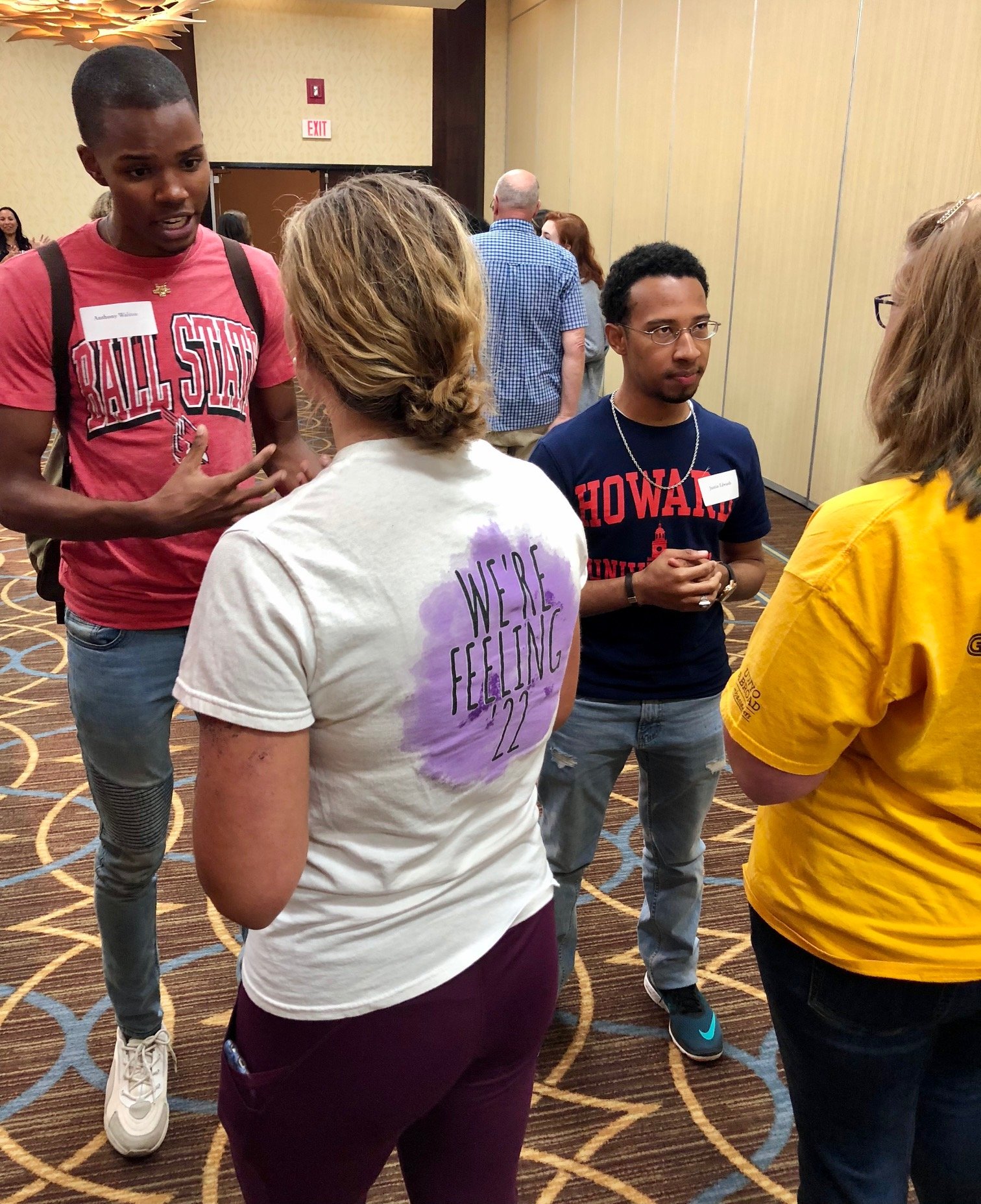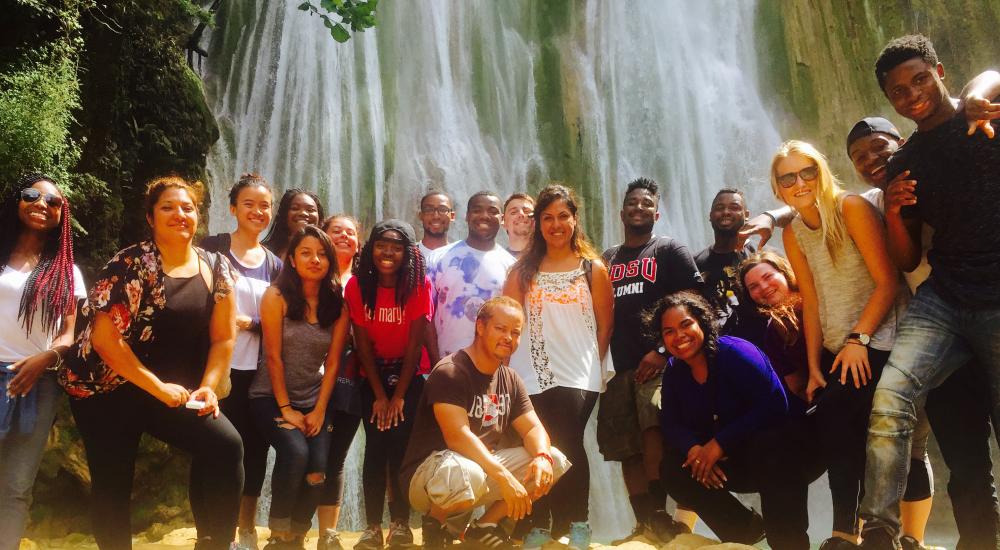Utilizing Education Abroad Alumni with Intentionality to Increase Students’ Access and Engagement
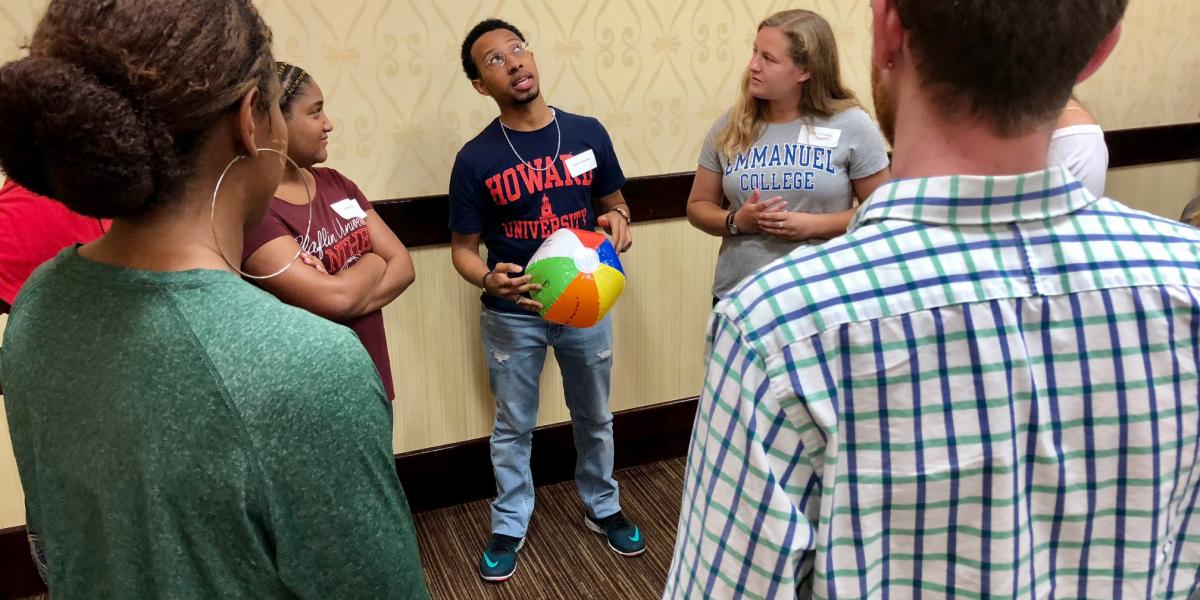
Alumni engagement is one of the most powerful tools the field of international education has, but it is an often-overlooked piece of the education abroad experience. Intentional and well-built education abroad alumni programs—initiatives that connect and engage students who have participated in an abroad experience either during or after their time on campus (e.g., the Fulbright Program)—provide opportunities for former education abroad participants to engage with their peers, model success for marginalized communities, dispel whitewashed narratives of who goes abroad, combat imposter syndrome for interested students, provide career development resources to alumni, and increase civic engagement.
Education abroad alumni are uniquely positioned to share their experiences, have them resonate profoundly with their peers, and have the ear of upper administrators and leadership to make a positive impact on their campuses and in their communities—provided they are given the resources and platforms to share their stories with purpose.
As more institutions have an increased focus on global competencies in their mission, vision, and values, practitioners in education abroad and international student and scholar services have an opportunity to position themselves and their work as even more essential to the success of their campus. Moreover, research has shown that participation in education abroad yields positive results that impact the bottom line, helping institutions achieve their objectives of increased retention and higher graduation rates.
Education abroad alumni engagement programs should be available to students upon return to campus and remain available well past graduation. To do this effectively requires time, resources, and dedicated staff attention from the education abroad office.
Four ways that staff can meet students’ needs and improve alumni access and engagement are intentionally creating a community, expanding engagement, prioritizing training, and preparing alumni for their careers.
1. Intentionally Creating Community
Just like in education abroad programs, a strong student community is essential to the success of any alumni programming. This sense of belonging and well-being has become increasingly important due to the isolation caused by the global pandemic.
Creating cohorts of study abroad alumni gives educators a structure within which to streamline their efforts and energy while also providing a means for students to give feedback and build trust with staff. Cohorts make space for education abroad participants to expand their personal and professional networks and demonstrate themselves as thought leaders. Alumni should be encouraged to openly share with each other and see the other members of their cohort as lifelong resources for personal and professional support.
“Creating community and building long-term connections within alumni cohorts is important for [several] reasons,” says Fulbright alum Ari Jones, JD, who served as a Fulbright English Teaching Assistant to Spain in 2012–13. “Fostering a sense of community within that realm allows alumni to effectively work together to communicate a shared message about a common program and interest. Having a strong alumni cohort allows participants to develop a safe and intimate space in which to share stories about their experiences and to learn from and bond and reminisce with people who have deep personal understanding of the ways in which international opportunities change us.”
The benefits extend beyond graduation, says Jones. Creating such connections with fellow alumni is an integral part of building a strong, lasting network to rely on as participants begin their career journeys.
Howard University’s Ralph Bunche Center created a program in 2016 called the Bunche Brigade to create this sense of community. Any student interested in the globalization of Howard is welcome to join the program, whether they have studied abroad already or not.
“At Howard, connecting with students throughout the study abroad cycle—recruitment, preparation, while overseas, and upon return—is approached much like any meaningful new relationship: with consistent and genuine interest and investment, intentionality, and a willingness to be of support. This mindset is the crux of the #StudyAbroadSoBlack Movement,” says Maraina Montgomery, MEd, assistant director of study abroad at Howard. “The result of developing student leadership over the events is a high level of authentic engagement, on all sides, that ultimately translates into feelings of trust and connectedness. Establishing this level of rapport at the onset of a student’s engagement with the study abroad office can often lead to study abroad returnees who wish to remain connected to a community of like-minded peers and accessible opportunities for servant leadership participation and practice.”
2. Expanding Engagement
Creating community and expanding engagement go hand in hand. To build on students’ expressed interest in study abroad and leverage returnees’ enthusiasm, the Bunche Center offers a comprehensive suite of programming for both groups.
“Programming can be used as a tool to expand the conversations that often start during tabling hours in the student center, while presenting in a classroom, or during a 1:1 study abroad advising session,” says Montgomery. “I see my role as being responsible for empowering and preparing study abroad alumni to codesign and lead the programming offered to their peers.”
“Establishing this level of rapport at the onset of a student’s engagement can often lead to study abroad returnees who wish to remain connected to a community of like-minded peers and accessible opportunities for servant leadership participation and practice.” —Maraina Montgomery
Expanding education abroad alumni engagement applies to three areas: the types of opportunities available, who is invited to join the conversations, and how long the programming is offered.
Which programs are available?
It is important to meet every returnee where they are. Some alumni will be eager to share their experience abroad, while others will not opt into any formal programming. No matter their perceived level of participation, all returnees have the ability to serve as a role model and influence their peers.
Returnees should receive information and resources for processing their experiences, including moments of identity-related trauma and other challenges, and given opportunities to share their time abroad with audiences in different formats. This can include in-person events, social media, podcasts, focus groups, alumni surveys, storytelling events, 1:1 meetings, or short videos.
As educators design programs, collaborating with alumni-driven initiatives that share common goals can expand reach and maximize time investment. For example, within the Fulbright Program, Instagram-based affinity groups have become spaces that reach new audiences, address grantee concerns, find solutions to improve grantees’ experience abroad, and serve as a space where alumni can connect and celebrate success.
One affinity group that uses technology to create community and expand engagement is Fulbright Noir. Launched in Belgium by a first-generation Nigerian-American STEM scholar, Fulbright Noir was created with the goals of building community and increasing the visibility and voice of Black scholars by sharing their stories, photos, and achievements. The enthusiasm and support that Fulbright Noir garnered served as a catalyst for the establishment of seven additional groups, including Fulbright Latinx, Fulbright Lotus, and Fulbright Prism. Each group serves the unique needs of its community, but all are driven by research that has demonstrated that representation matters and seeing oneself reflected in spaces where they aspire to be can have a positive influence on their ability to do so.
Who is invited to join the conversations?
University of California-Davis (UC Davis) recently expanded the traditional returnee conference model and created the Global Learning Conference, which was open to all students interested in solving global issues—whether they had done a formal study abroad program or not. By actively bringing together study abroad participants, international students, first-generation college students, and students who have navigated intercultural spaces, the conference expanded each attendees’ network and knowledge in myriad ways. The conference launched in 2020 with more than 150 attendees, and participation is expected to double this year.
“Aligning with our UC Davis goal of ‘Global Education for All’ and our commitment to diversity, equity, and inclusion, expanding the scope and accessibility of the conference to all students and to all alumni emphasizes the fact that global learning can take place anywhere and anytime,” says Joanna Regulska, PhD, vice provost and dean of global affairs at UC Davis. “In addition to the different locations and contexts, we’re also emphasizing that global learning crosses generations, disciplines, industries, and all types of diverse experiences and perspectives. Our Global Learning Conference celebrates the unique backgrounds, experiences, and strengths of students and alumni, while bringing this larger group together to create networks, find opportunities, and explore global systems, global diversity, and equitable global action—all of which are relevant at any academic or career stage.”
How long is programming for alumni offered?
One of the major challenges in working with alumni, especially at institutes of higher education, is the limited time students spend on campus following their global experience. Keeping alumni engaged longitudinally is an important factor that is often missing in the international education alumni space—and one that needs further exploration. This type of engagement allows for stronger connections to be made between the personal value of the time abroad and participants’ careers.
“Sometimes your international experience feels abstract as time goes by, so my efforts to remain connected to the global exchange community through different volunteer opportunities have allowed it to remain a living, breathing experience that continues to enrich my life.” —Cris Ramón
A successful example of long-term engagement is the Fulbright U.S. Student Program’s Fulbright Alumni Ambassador 75th Anniversary cohort, which comprises “Legacy Alumni Ambassadors” from the alumni program’s 12-year history. In addition to demonstrating the diversity of professional and academic outcomes that can develop following a Fulbright experience, the ambassadors support the program by producing impact stories from different points in their careers and sharing these stories on national and global levels.
“I think my efforts to stay engaged with the Fulbright community past my year abroad have been really vital to keeping that experience ‘alive’ for me as I’ve grown older,” says Alumni Ambassador Cris Ramón, MA. “Sometimes your international experience feels abstract as time goes by, so my efforts to remain connected to the global exchange community through different volunteer opportunities have allowed it to remain a living, breathing experience that continues to enrich my life.”
Practitioners in education abroad and international services offices are sitting on a gold mine of alumni who, if properly prospected, could yield a wealth of riches. The Alumni Ambassador Program is just one example of how to re-engage alumni for the advantage of all parties involved.
3. Prioritizing Training
Training is essential to help alumni understand the role and agency they have in increasing access to and participation by their peers who are currently underrepresented in education abroad programs. Alumni programs can be a means to model success for marginalized communities by dispelling whitewashed narratives of who goes abroad and combatting imposter syndrome for interested students; training plays a crucial role in this effort.
Education abroad professionals should provide ongoing spaces, both formal and informal, for alumni to reflect on their time abroad, prepare to share their story with different audiences, and understand which stories appeal to which audiences.
Prior to the COVID-19 pandemic, the AIFS Abroad Alumni Ambassador Program brought each year’s cohort of between 30 and 50 returnees to Stamford, Connecticut, to take part in a comprehensive 2.5-day training program. For the 2020–21 academic year, training moved to asynchronous video modules coupled with live Zoom meetings over 2 days.
During their training, returnees are provided information on current demographics of participation rates for study abroad. As a cohort, they discuss the communities they want to connect with and ways they can collaborate across campuses. Ambassadors are asked to reflect on their own identities throughout the program, as well as identify two communities that are underrepresented in study abroad at their campus—at least one of which is outside their own social identities. The Ambassadors receive guidance from AIFS Abroad staff and returning Ambassadors on how to intentionally connect with the populations they have identified and the importance of their engagement being authentic and sustained. This is especially true when returnees are engaging in spaces outside of their own social identities or traditional spheres of influence.
The goals with this continued interaction are to increase representation from students who are historically marginalized in study abroad, encourage alumni to parallel the experience of going outside of their comfort zone while abroad, and connect alumni with individuals they might not have engaged with already on their campus.
4. Preparing Students for Their Careers
Although it is not the only reason that alumni engage with reentry programming, preparing for their postcollege career is an important component. Alumni who are given resources and continuous opportunities to articulate the value of their time abroad will be better positioned to present themselves and their experiences in an interview setting. Because collaboration is key to providing well-rounded and comprehensive alumni support, international educators should build and foster relationships with staff in the career and alumni centers to assist in supporting returnees.
Several resources can be helpful in preparing returnees for postgraduation life:
- The National Association of Colleges and Employers’ (NACE) Career Readiness Competencies provide a framework on which to build alumni programming.
- The Association of American Colleges and Universities’ (AAC&U) Valid Assessment of Learning in Undergraduate Education (VALUE) rubrics, available for free on the organization’s website, cover topics such as civic knowledge and engagement and intercultural knowledge and competence. The rubrics can provide core values for building inclusive and comprehensive alumni support.
- When funding permits, offices are encouraged to offer alumni opportunities to attend events such as NAFSA’s Advocacy Day, which allows them to understand the role that international education and civic engagement can play in their careers and personal lives.
Access to external-facing events provides alumni with opportunities to step into professional settings to which they may not otherwise have access and practice putting their skills to the test. The exercise of developing and practicing an elevator pitch is a major component of the preorientation meeting for newly minted Fulbright Alumni Ambassadors, and exposure to different contexts and audiences is a training ground to figure out what works and does not work. This skill lays the foundation for confidence and increased agency in knowing the value in telling their story.
A Win-Win for All
Empowering education abroad returnees to be leaders among their peers and encourage and guide future participants is a win-win for all parties. Returnees are provided the tools they need to process and share their experiences, and in doing so they are better able to articulate the value of those experiences to their peers, faculty, and upper administration. This increased visibility of alumni amplifies the voices and needs of those going abroad to be better supported upon their return.
As education abroad offices and institutional support can vary widely, it is important to remember that it is acceptable and often necessary to start small. Continue to build efforts as resources, including additional staffing, are made possible and as collaborations grow. •
NAFSA Resources
- Making Meaning of Education Abroad: A Journal for the Returnee Experience
- Incorporating Education Abroad into Your Career Plan
- “Linking International Experiences to Career Development” in Facilitating Education Abroad: Blueprints for Successful Advising
Additional Resources
About International Educator
International Educator is NAFSA’s flagship publication and has been published continually since 1990. As a record of the association and the field of international education, IE includes articles on a variety of topics, trends, and issues facing NAFSA members and their work.
From in-depth features to interviews with thought leaders and columns tailored to NAFSA’s knowledge communities, IE provides must-read context and analysis to those working around the globe to advance international education and exchange.
About NAFSA
NAFSA: Association of International Educators is the world's largest nonprofit association dedicated to international education and exchange. NAFSA serves the needs of more than 10,000 members and international educators worldwide at more than 3,500 institutions, in over 150 countries.
NAFSA membership provides you with unmatched access to best-in-class programs, critical updates, and resources to professionalize your practice. Members gain unrivaled opportunities to partner with experienced international education leaders.


